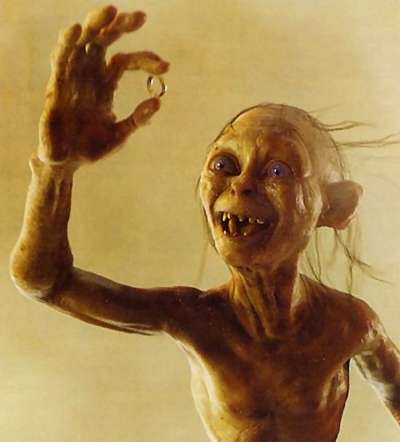Archetypes:
The archetypes represent the three ways to live in American Society. Individuals often change archetypes, ascending or descending to a different state of being according to their actions, new knowledge, or self discovery. The images/characters chosen here are the clearest cut examples; they don't change archetypes.Astronaut - self-contained, alone, and physically or psychologically existing within an infinite space. Characterized by innovation, initiative, and investigation, the astronaut contributes to society from afar; His discoveries reveal the unknown and unexplored, but often with more questions than answers. Cognition and the constant need to explore is the foremost concern to the astronaut. Often the astronaut sacrifices his belongings or life for the greater good of society or of knowledge.
 |
| Robert Neville in I am Legend (2007) is an Astronaut |
Cowboy - disreagards authority, follows his own morality, and controls his own destiny. The self always comes first and foremost, favoring self-preservation over most anything else. His surroundings mix natural/chaotic and man-made/ordered elements to create a visual tension that he struggles with and against at various times. He answers to no one but his self. Also, the cowboy is the most variable archetype.
 |
| The Joker from The Dark Knight (2008) Clearly a Cowboy |
Zombie - Mindlessness, consumption, apathy, and a non-influential lifestyle. He does not contribute anything to society, and takes more than necessary. The hoard mentality of mentality influences his actions: following whatever orders or actions the person near him does without regard to individual wants or needs.
 |
| Gollum from Lord of the Rings (2001 - 2003) obeys the ring's desires, wants, and needs. |
Other Archetypes:
These are more stereotypes than archetypes. The girl, the brown, and the black usually morph into a more specific stereotype, but retain specific characteristics. Sometimes they exhibit aspects of the main archetypes.
Amazon - Non-anglo individuals (usually women) who do not pose any sort of threat and are socially, politically, or sexually superior to their peers. Opposite of Browns (below).
 |
| Amazon Cece from New Girl (Fox, 2011) may be more confident, sexual, and successful than Jess, but they're still BFFs |
 |
| Luther West in Resident Evil: Afterlife (2010) uses his smarts and basketball skills to survive the Zombiepocalypse |
Brown - A.) Non-Anglo foreigners who do not pose any sort of threat, but are socially, politically, and sexually inferior to their black or white counterparts, browns often appear as comic-relief.
 |
| Fez from That 70s Show (1998 - 2006) paved the way for other Brown A! |
Girl - Incompetent but trying. The Girl doesn't fight against 'the man' but tries to assimilate into 'the man's' world. She wants her social, sexual, and professional lives to be equal to a man's but struggles with youthful desires.
 |
| Alison Scott and pretty much everyone else in Knocked Up (2007) are Girls |
Realms
The City - the fall of the belief in humanity; giving up the self (Death of the Cowboy) and giving up on others (Death of the Astronaut). It is hell where residents/the hoard blindly take what's given to them without thinking, choosing, or believing anything. In The City, nothing struggles or fights as in the West, nothing searches or strives as in Space.
 |
| The Axiom in WallE (2008) is a perfect example of The City |
Space - The Infinite. The Final Frontier. The Source for all Knowledge. The Alpha and the Omega. Heaven. Exists more as a philosophical abstract rather than a tangible realm.
The West - the untamed horizon with unlimited potential and unknown consequences. The lack of social structure voids traditional rules and conventional conveniences. The West becomes either a purgatory where individuals find their true nature, or an Eden where individuals try to escape into.
Nostalgia - Found within The City, but disguised as something else. The past (aesthetically or ideologically) is seen as superior to the present.
| I know its British, but the TARDIS in Doctor Who represents Space best. |
 |
| In Winter's Bone (2011) Ree travels Purgatory West to keep her Eden West |
Lesser Realms
Reality - Not real-life, but as in TV. Super- and sub-humans in Space, The West, or The City that normal people look on as if it were real-life. More to come.
The Road - An inter realm, perhaps a variation of The West that exhibits more instances of peaceful self-discovery and freedom than the purgatory West. The American Walkabout often takes place on The Road rather than the west, which allows more interaction with society.
The Tower - The center of humanity. A place to protect, but also the source/origin of destruction.
Owl - BEARBULL's counterpart, who stole knowledge from its keepers and made it available to everyone. More to Come
The Road - An inter realm, perhaps a variation of The West that exhibits more instances of peaceful self-discovery and freedom than the purgatory West. The American Walkabout often takes place on The Road rather than the west, which allows more interaction with society.
 |
| Cars (2006) obviously takes place on The Road |
Deities:
BEARBULL - The Trickster that drives people's actions. BEARBULL is not concerned with good/evil but with power. Money is BEARBULL's means to control the power (products, services, knowledge) available to individuals.Owl - BEARBULL's counterpart, who stole knowledge from its keepers and made it available to everyone. More to Come
No comments:
Post a Comment